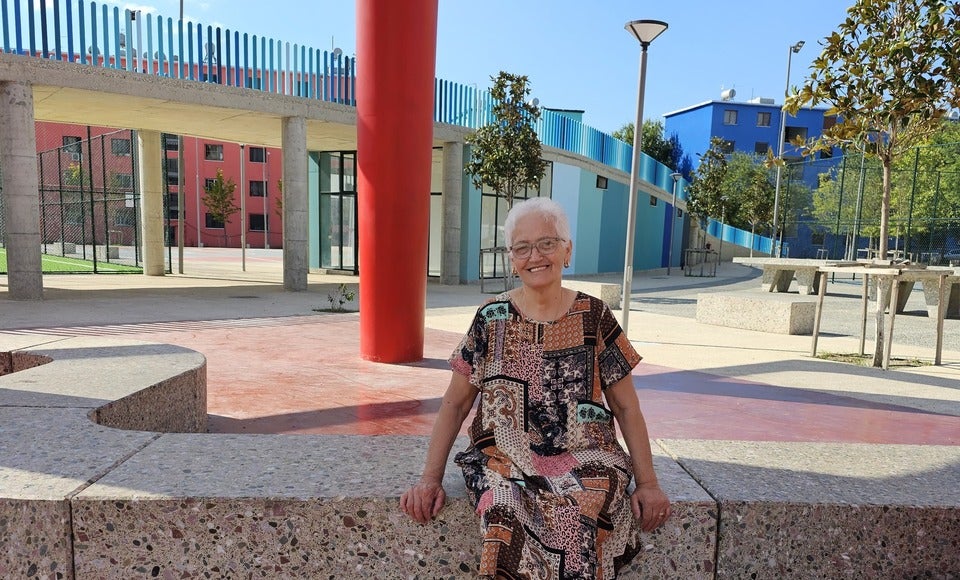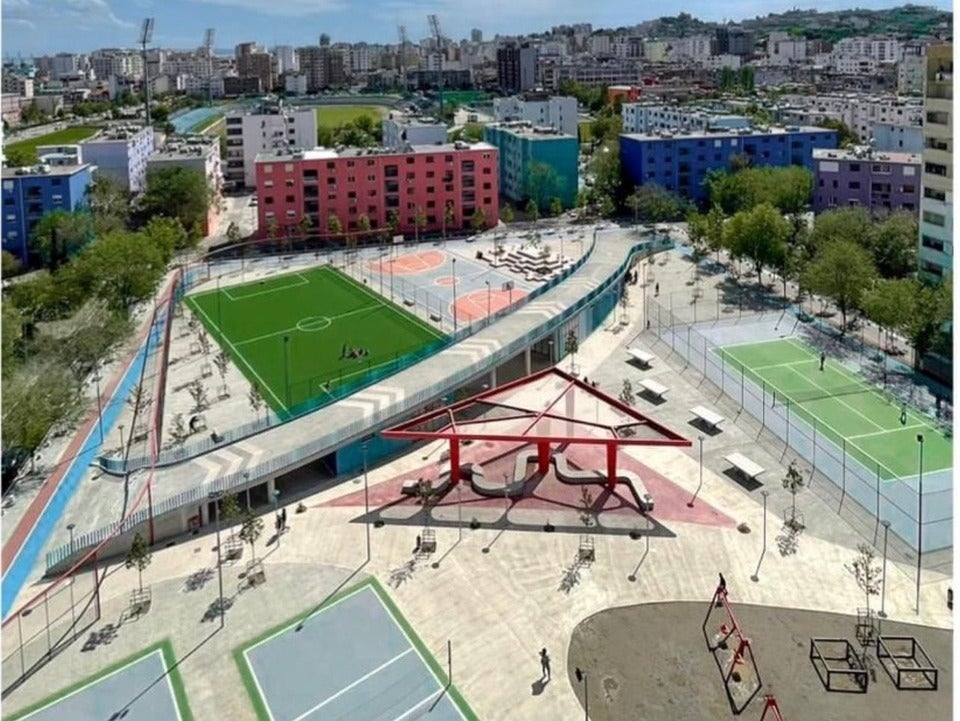Transforming Communities through Participatory Gender Budgeting
In Albania, women and girls are increasingly shaping their communities through participatory gender budgeting. Supported by UN Women, local organizations like the Center for Community Development "Today for the Future" have empowered women such as Sirije Kumaraku to voice their needs and participate in decision-making processes. In Durrës, this initiative has brought tangible improvements for families, including new recreational spaces and enhanced infrastructure.
Date:

Sirije Kumaraku, a grandmother from Durrës, Albania, has lived for nearly 50 years in Neighborhood No. 18, about two kilometers from the city centre. A former employee of the Durrës Hospital, Sirije recalls what this community was like in the early days.
When she first arrived in this area with her husband in 1976, the neighborhood had only double brick buildings and little infrastructure. Ten years later, prefabricated constructions began to appear and then, after the 1990s, the area faced a wave of internal migration. This led to unauthorized constructions which in turn further exacerbated the marked deficiencies in infrastructure, lighting and security in the area. "At that time, we had no roads, no trash cans, and no street lighting at all. The park you are looking at was once a garbage dumping ground for all the neighborhoods. Services and amenities were limited and our biggest concern was the safety of our children," Sirije Kumaraku recalled.
As a mother of two children, Sirije felt it was important to take them to play outside in a park, but the options were limited. The nearest suitable spot for leisure activities was around 40 minutes away. “We had to take long walks to reach the nearest square. That was our only escape, so to speak, and getting there was quite was tiring, especially for the children”, she added.
Over the past seven years, with the support of local organizations like the "Today for the Future" Community Development Center and UN Women, Sirije and other women have taken a stand to advocate for the needs of their community. This effort is part of the UN Joint Programme “Leave No One Behind,” funded by the Swiss Agency for Development and Cooperation, which seeks to enhance the participation of women, girls, and marginalized groups in decision-making processes.
Fabiola Egro, Executive Director of the “Today for the Future” Center, shared insights into her organization’s collaboration with UN Women. She highlighted how they worked to put in place a system that would bridge the gap between women’s needs and local government budgeting processes. This initiative emerged from a pressing need, as women and girls were largely excluded from public discussions on gender-responsive budgeting.
“Our collaboration with UN Women began seven years ago when we discovered that 94% of women and girls were not participating in the gender-responsive budgeting hearings with local government authorities. We started piloting this project in Tirana (the capital), by initiating conversations with women and girls, drawing comparisons between household budgets and those managed by local governments, and discussing how their needs could be addressed through existing budget allocations,” Fabiola Egro noted.

Sirije and her friends first heard about participatory gender budgeting hearings through her son and some acquaintances from nearby communities who had already engaged in similar initiatives. Encouraged by these stories, they came together to discuss their community’s needs and decided that participating in this process could bring valuable changes.
They attended gender budgeting hearings organized by the Durrës Municipality and requested improvements in infrastructure, enhanced security and the creation of a multifunctional public space for children and the elderly. Though it seemed impossible at first, during 2023-2024 the neighborhood went through significant change. The municipality built multifunctional play areas for children and recreational spaces for the elderly, and improved the area’s infrastructure with new lighting and waste management.
"Now, we have a safe and beautiful place to spend time in with family and friends – it has truly changed our lives," Sirije shared. "I used to worry about it being dirty and dangerous for my grandson to play outside. Now we can enjoy the park nearby stress free. It’s such a relief and it has made such a big difference,” Sirije noted.
The impact of this initiative has not gone unnoticed by the local government authorities. The Deputy Mayor of Durrës, Gentian Kallmi, emphasized the significance of participatory gender budgeting in shaping local governance:
"The participatory budgeting process has become a cornerstone of our commitment to responsible gender governance in Durrës. Through our collaboration with the “Participate, express, decide!” initiative and with the support of UN Women Albania, we are proud to advance gender equality and improve the lives of women and girls in our city. One of the most tangible examples is the transformation of Vala Park. By listening to the voices of women who highlighted environmental and safety concerns, we prioritized their needs and created a park, fostering both safety and community life,” Gentian Kallmi said.
"Participate, express, decide!" is an initiative of the Center for Community Development with the support of UN Women that has enabled women and girls to take active part in participatory budgeting processes in 15 municipalities of the country. Since its start in 2018, this initiative has engaged over 3,000 women and girls, giving them the opportunity to articulate their needs and work together with local authorities to influence community development and improve their lives.